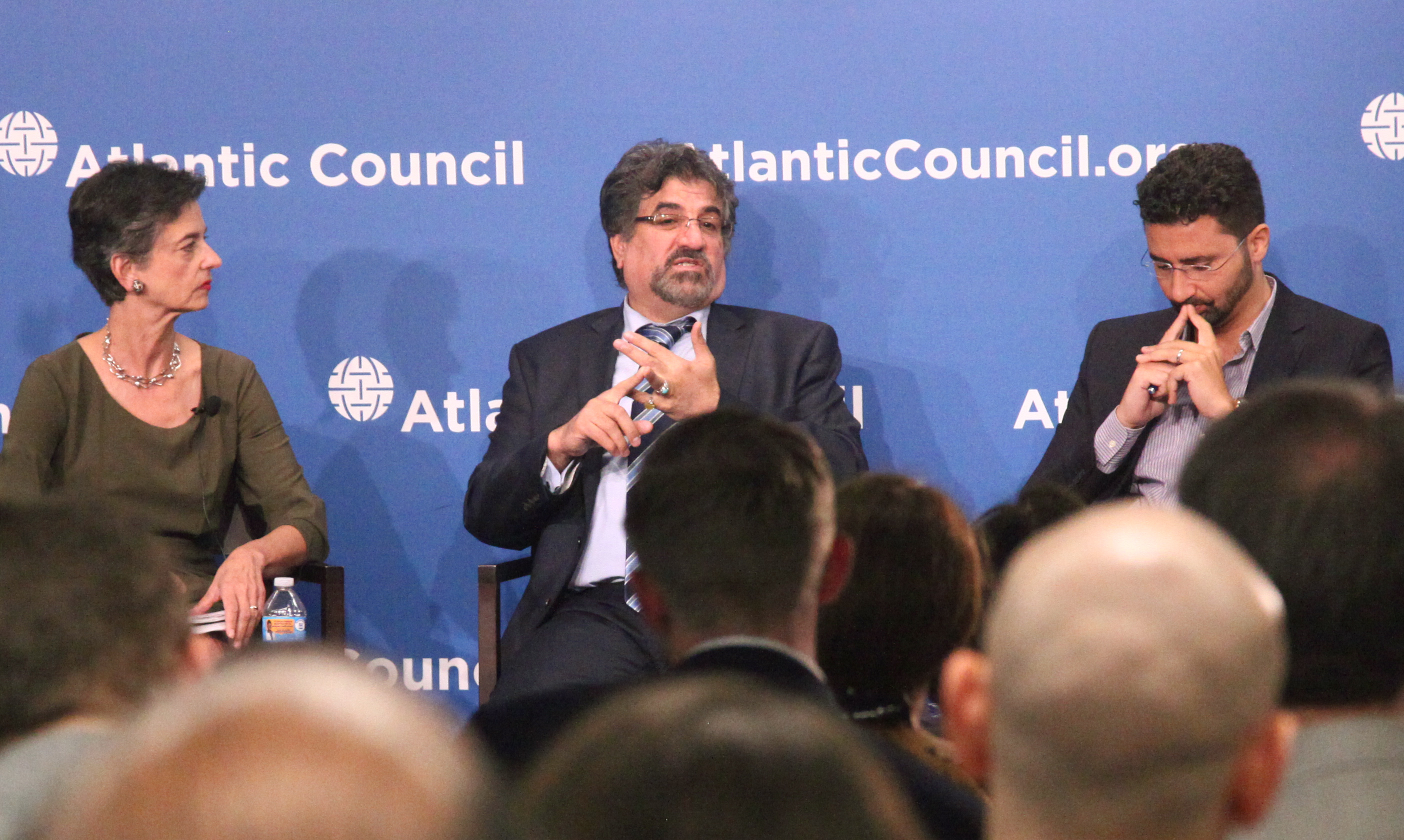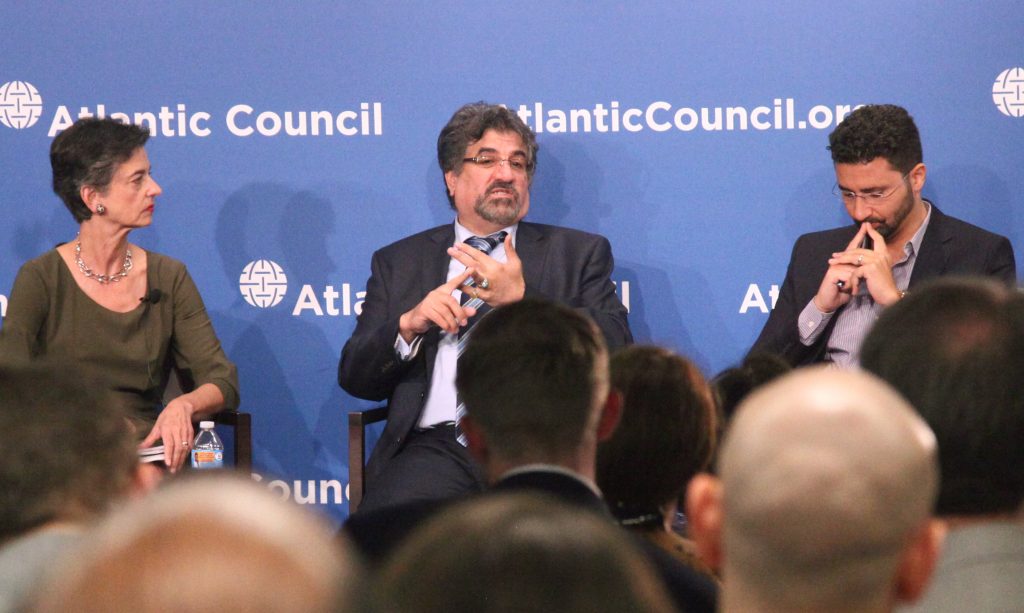 On September 14, the South Asia Center hosted Nasser Hadian and Bilal Saab to discuss Iran’s regional role following the Joint Comprehensive Plan of Action. Hadian, an Iran-based analyst and University of Tehran professor, presented findings from his new paper, which argues that Iranian policymakers are divided between those who believe Iran must act more forcefully to help stabilize its neighbors and those that advocate a more minimalist approach–contrary to perceptions that Iran is determined to expand its intervention in regional conflicts.
On September 14, the South Asia Center hosted Nasser Hadian and Bilal Saab to discuss Iran’s regional role following the Joint Comprehensive Plan of Action. Hadian, an Iran-based analyst and University of Tehran professor, presented findings from his new paper, which argues that Iranian policymakers are divided between those who believe Iran must act more forcefully to help stabilize its neighbors and those that advocate a more minimalist approach–contrary to perceptions that Iran is determined to expand its intervention in regional conflicts.
The dominant view that holds in Iran suggests that “Iran cannot be an island of stability in a region of instability,” suggesting that Iran must be a force for stabilization or be drawn into conflict that will inevitably spill over Iran’s borders. Iranian policymakers, Hadian explained, base their foreign policy decisions on its internal threat perceptions. Interventions in Lebanon, Syria, and Iraq provide strategic depth in the face of Israel and the United States. However, this view does not exist unchallenged in Iranian policy circles. A growing view in Iran suggests a minimalist approach. Particularly following the nuclear agreement, the United States and its partners should recognize that this internal policy debate is occurring within Iran on its role in the region and the greater global order.
{soundcloud}https://soundcloud.com/atlanticcouncil/irans-regional-role-after-the-nuclear-deal{/soundcloud}
Saab, Atlantic Council’s Senior Fellow on Middle East Peace and Security, argued that Iran can only be evaluated but its intentions and capabilities. While Iranian intentions remain difficult to isolate, Iranian capabilities have been demonstrated clearly through several instances in which Iran advanced its interests in the Middle East, Saab contended, citing Iran’s support of Hamas and Hezbollah, among other major events. Saab urged that, while an internal debate within Iran may be significant, an equally important debate should be taking place between Iran and its Gulf neighbors “because the disconnect on what regional stability, means and how best to achieve it, seems quite large.”
